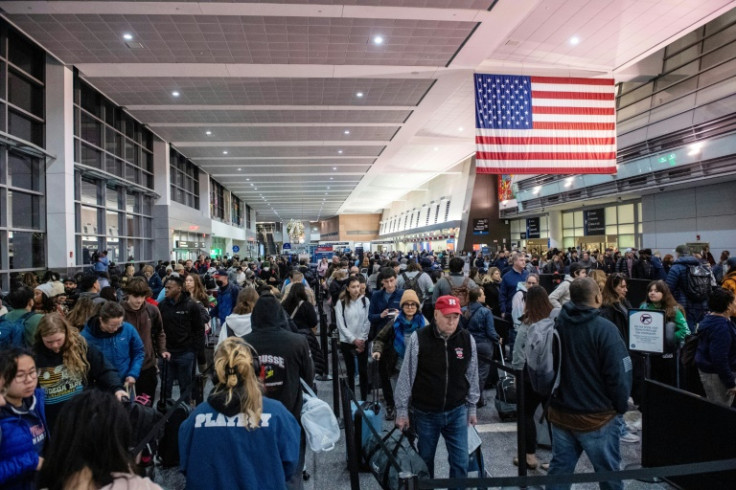
AAA projects that over 115 million Americans will travel over 50 miles from their home over the 2023 holiday season, the second highest figure on record.
Air travel in the U.S. during the period of Dec. 20 through Jan. 1 will reach an all-time record of 7.5 million passengers, according to AAA, up 4.7% from 2022 and up 2.4% relative to 2019. Industry lobbyist Airlines for America predicts an even higher total number of holiday air travelers, up 16% from 2022 with airlines serving nearly 3 million customers per day.
A busy air travel season around Christmas and New Year's will invariably result in higher carbon emissions across the U.S. According to data compiled by The New York Times, a round-trip flight between New York and Europe or the US West Coast creates a warming equivalent of 2 to 3 tons of carbon dioxide per person—an American produces 19 tons of carbon per year, on average, compared to 10 tons for a European.
"For many people in New York City, who don't drive much and live in apartments, this is probably going to be by far the largest part of their carbon footprint," Anja Kollmuss, an environmental consultant based in Zurich, told The New York Times. Reducing air travel, whenever possible, is a common prescription given by climate experts to those interested in limiting their carbon output.

And it's not just air travel accounting for the holiday season's carbon footprint. A 2007 study from the Energy Savings Trust found that Christmas lights in the United Kingdom account for 77,500 tons of CO2 emissions per year (enough to fill 15,500 hot air balloons).
The carbon impact of the holiday season is considerable, and will grow alongside the US economy so long as existing transportation and electric grid systems remain dependent on fossil fuels.
Unlike oil, gas and coal, however, the holiday season is certainly not going away. Continued advancements in the coming years of technologies like green/sustainable jet fuel and more efficient electric vehicles may be key to a future in which climate-conscious consumers can stop stressing over the environmental tradeoffs of traveling to see family over the holidays.







